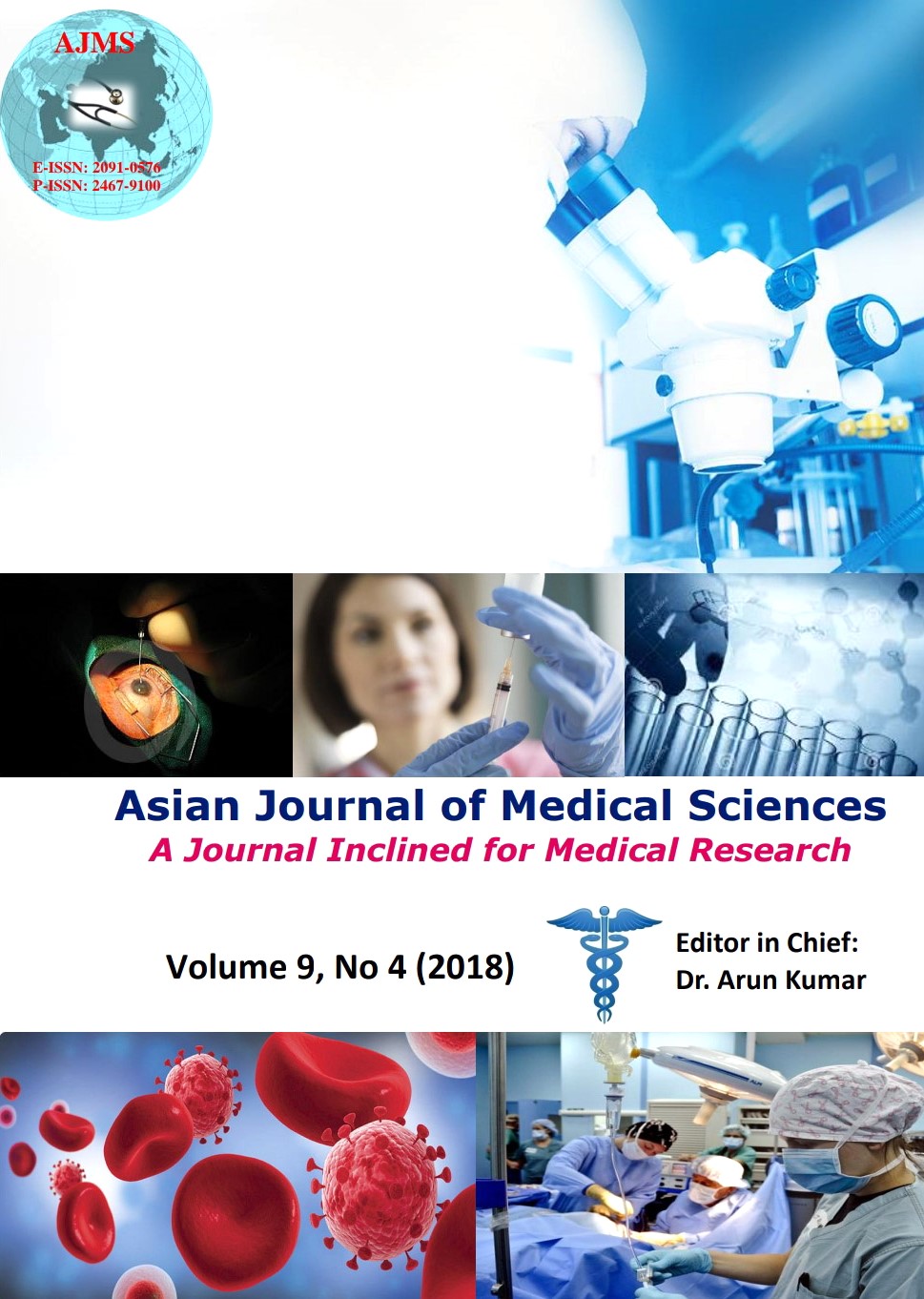Study of pro-oxidant status in acute myocardial infarction
Keywords:
AMI, Oxidative stress, Non-diabetic, Non-hypertensive, Non-smoker, TBARS, LDL, HDLAbstract
Background: Apart from several well documented risk factors; oxidative stress may play an important role in the pathogenesis of myocardial infarction. Our study has been designed to investigate the pro-oxidant status in AMI patients who have no previous history of diabetes, hypertension and habit of smoking.
Aims and Objectives: To measure the level of serum thiobarbituric acid reactive substances(TBARS) to assess the extent of oxidative damage in recently diagnosed cases of AMI and to look for any correlation between this stress marker and some of the lipid profile markers.
Materials and Methods: A cross sectional study was conducted in a tertiary care hospital with 50 non-diabetic, non-hypertensive, non-smoker AMI patients of either sex as Cases and 50 age and sex matched healthy Controls. The biochemical parameters were measured by validated techniques.
Results: Level of serum TBARS (4.78 ± 1.06 nmol/ml) has significantly increased (p<0.001) in cases with respect to control group(2.19±0.41 nmol/ml); a positive correlation between serum TBARS and LDL; a negative correlation between serum TBARS and HDL in cases.
Conclusion: Our study indicates an increased oxidative stress in AMI patients even in absence of some high risk factors which are oxidative stress inducers by themselves. This evidence suggests that oxidative stress itself may play an important role in the pathogenesis of myocardial infarction. So, the oxidative stress marker may have the importance in early diagnosis of AMI. It also suggests the potential appropriateness of antioxidant therapy in the prevention of AMI.
Asian Journal of Medical Sciences Vol.9(4) 2018 31-34
Downloads
Downloads
Published
How to Cite
Issue
Section
License
Authors who publish with this journal agree to the following terms:
- The journal holds copyright and publishes the work under a Creative Commons CC-BY-NC license that permits use, distribution and reprduction in any medium, provided the original work is properly cited and is not used for commercial purposes. The journal should be recognised as the original publisher of this work.
- Authors are able to enter into separate, additional contractual arrangements for the non-exclusive distribution of the journal's published version of the work (e.g., post it to an institutional repository or publish it in a book), with an acknowledgement of its initial publication in this journal.
- Authors are permitted and encouraged to post their work online (e.g., in institutional repositories or on their website) prior to and during the submission process, as it can lead to productive exchanges, as well as earlier and greater citation of published work (See The Effect of Open Access).




